- Home
- J. R. Rain
The Mummy Case jk-2
The Mummy Case jk-2 Read online
The Mummy Case
( Jim Knighthorse - 2 )
J R Rain
The Mummy Case
J.R. Rain
Chapter One
I was doing decline push ups when my office door opened. Decline push ups cause a lot of blood to rush to your head and a fabulous burn across the upper pectorals. They also looked pretty damn silly in a professional environment. Luckily, this wasn’t a professional environment.
Somebody was quietly watching me, probably admiring my near-perfect form or the way my tee shirt rippled across my broad shoulders. Either way, I rattled off twenty more, completing my set of a hundred.
In a distinctive country twang, a man’s voice said, “I could come back.”
“And miss my near-perfect form?”
I eased my running shoes off the desk and immediately felt a wave of light-headedness. Granted, I didn’t entirely mind the light-headedness. I am, after all, a sucker for a good buzz.
The man who came swimmingly into view was wearing a cowboy hat and leaning against my door frame, a bemused expression on his weathered face. He was about twenty years my senior.
“Howdy partner,” I said.
He tipped his Stetson. “So what are those push ups supposed to do, other than cause a lot of blood rush to your head?”
“That’s enough for me,” I said happily. “Oh, and they happen to be a hell of a chest workout.”
“Seems like a lot of trouble,” he said.
“It’s not easy being beautiful.”
“Ah,” he said. “You must be Jim Knighthorse. I heard about you.”
“Lucky you.”
As he spoke, his Adam’s apple bobbed up and down like a buoy in a storm. His white hat sported an excessively rolled brim-completely useless now against the sun or rain. Maybe he was a country music star.
“I was told you could be a cocky son of a bitch.”
“You would be, too,” I said. “If you were me.”
He looked at me and shrugged. “Well, maybe. You’re certainly a big son of a bitch.”
I said nothing. My size spoke for itself. He looked around my small office, perhaps noting the many pictures and trophies that cluttered the walls and bookcases, all in recognition of my considerable prowess on the football field. Actually, all but one. There was a second place spelling bee trophy in there somewhere. Lost it on zumbooruk, a camel-mounted canon used in the Middle East. Hell of a shitty word to lose it on.
“I heard you could help me,” he said finally, almost pitifully.
“Ah,” I said. “Have a seat.”
He did, moseying on into my small office. As he sat, I almost expected him to flip the client chair around and straddle it backward, cowboy-like. Instead, he used the chair as it was originally designed, although it was clearly not designed for someone as tall as he. His bony knees reached up to his ears and looked sharp enough to cut through his denim jeans. I sat behind the desk in a leather brass-studded chair that was entirely too ornate for its surroundings. The leather made rude noises.
Ever the professional detective, I kept a straight face and asked for his name.
“Jones,” he answered. “ Jones T. Jones, to be exact.”
“That’s a lot of Joneses.”
“Well, yes,” he said, blushing slightly. “It’s not really my name, you see. It’s sort of like a stage name. You know, a gimmick.”
“So you’re an actor?”
“No, I own a souvenir shop in Huntington Beach. But I’ve acted as the spokesperson in my own commercials.” Ah. It came to me then. I’d seen Jones before, late at night on the local cable circuit. Usually right before I passed out in a drunken stupor. Damn cheesy commercials, too, many involving what appeared to be a rabid monkey. Sometimes Jones and the monkey danced. I was embarrassed for Jones. “Maybe you’ve heard of it,” he continued. “Ye Olde Curiosity Shoppe.”
“Heard of it?” I said. “Hell, I spelled old and shop with extra e’s and p’s up until the fifth grade. My teacher, Mrs. Franks, thought I was Chaucer reborn.”
He laughed. “I wanted to change the name when I bought the store a number of years ago, but there was a big public uproar.” He cracked a smile, and I realized that he enjoyed the big public uproar. “So I gave in to pressure and kept the damn name. I regret it to this day.”
“Why?”
“No one can find us in the phone book…or even on the internet. They call us and ask: Are we under Y or O? Is it Ye or The?” He sighed and caught his breath, having worked himself up. “I mean, what were the original owners thinking?”
“Maybe they were English.”
He shrugged. We were silent. Outside, in the nearby alley, a delivery truck was backing up, beeping away. I was one of the few people who appreciated the warning beeps.
“So what can I do for you, Mr. Jones?” I asked.
“I’d like to hire you.”
“ Zumbooruk!” I said.
“Excuse me?”
“Exactly.”
Chapter Two
“You know about Sylvester the Mummy, then?” asked Jones.
“Still dead?” I asked.
“As a doornail.”
Sylvester the Mummy was one of Huntington Beach’s main attractions-ranking a distant third behind waves and babes- and currently resided at the back of the Ye Olde Curiosity Gift Shoppe in a cozy polyurethane case for all the world to see. Sylvester had been found in the California deserts over a hundred years ago near a ghost town called Rawhide. Since then, he’d been passed from museum to museum, exhibit to exhibit, until finally coming to rest at Ye Olde Gift Shoppe in Huntington Beach. Wouldn’t his mother be proud? Although his identity is unknown, most historians figure Sylvester had once been a cowboy. Which, I figure, means he probably once owned a horse and a six shooter, ate beans from the can over an open campfire and sang lonesome songs about loose women. That is, of course, until someone put a bullet in his gut and left him for dead in the middle of the Mojave Desert. Experts figured the old boy had mummified within 24 hours due to a rare combination of extreme desert heat and chemicals in the sand. A true John Doe, he had been named after the very miner who discovered him, which I always found a little creepy.
“What about him?” I asked.
“Two months ago, as a publicity stunt, I hired a young historian fresh out of college to look into Sylvester’s background. You know, generate some interest in my little store. Of course, I didn’t really think the historian would find anything on Sylvester. But that wasn’t the point.”
“The point being to generate interest in your little store.”
“Yes, exactly.”
Ah, exploiting the dead.
“Go on,” I said.
Jones shifted, suddenly looking uncomfortable, as if his tight jeans were giving him one hell of a wedgie. “The historian-a kid really-provided me regular reports. He did original research, digging through old records, even traveling out to Rawhide once or twice to interview the town historian.”
He stopped talking. I waited. I sensed something ominous. I call this my sixth sense. Catchy, huh?
Jones’ expression turned pained. The mother of all wedgies? “Then the reports stopped, and I didn’t hear from him for a while. Shortly thereafter, his mother reported him missing. Soon after that, the sheriff’s department found him dead.”
“Found him where?”
“In the desert. Near Rawhide.” He took a deep breath. “And just this morning I received word from the San Bernardino Sheriff’s Department that his death was being officially ruled an accident. They figure he got lost in the desert, ran out of gas and died of thirst.”
I sat back in my chair and rested my chin on my fingertips. Sweat had appeared on Jones’s forehead.
His flashy showmanship was out the window.
“I assume you disagree with their findings,” I said.
He thought about it.
“I suppose so, yes.”
“Why?”
He reached up and unconsciously rolled the brim of his Stetson, a nervous habit, which now explained why the thing looked like a Del Taco Macho Burrito.
My stomach growled. Lord help me.
“It’s hard to say, Knighthorse. It’s just a gut feeling I have. The kid…the kid was smart, you know. A recent college graduate. I was impressed by him, and not just by his book smarts. He seemed to have a sensible head on his shoulder; street smarts, too.”
“Too sensible to get lost in the desert.”
“Yes. Precisely. That’s exactly why I’m here.”
“That,” I said, “and you feel guilty as hell for sending a kid out to his death.”
He looked away, inhaled deeply. “Jesus, Knighthorse. Put it that way, and you make it seem like I killed him.”
“So what do you want me to do?”
“I want you to look into his death. Make sure it was an accident.”
“And if it wasn’t an accident?”
“I want you to find the killer.”
“Finding the killer is extra.”
“Price is no object.”
“ Zumbooruk!”
“Why do you keep saying that? What does it mean?”
“It’s a camel-mounted canon used in the Middle East.”
“I don’t get it.”
“Neither do I.”
Chapter Three
I met Detective Sherbet at a sandwich shop on Amerige St. in downtown Fullerton. Sherbet was a big man with a big cop mustache. He wore an old blue suit and a bright yellow tie. He ordered coffee and a donut. I ordered a Diet Pepsi, but thought the donut idea was a pretty good one. So I had the waitress bring me three of whatever she had left, because when it comes to donuts, any flavor will do.
“What if she brings you a pink donut?” asked Detective Sherbet.
“Pink is good,” I said.
“I hate pink.”
“In general?”
He thought about that, then nodded. “Yeah.” He paused, looked away. “My boy likes pink.”
“I’m sorry,” I said.
“Me, too.”
“How old is your boy?”
“Eight.”
“Maybe he will grow out of it.”
“Let’s hope.”
The waitress brought me three cake donuts. Chocolate, glazed, and pink.
Uh oh.
“Are you okay with me eating this?” I asked, pointing to Sherbet’s arch-nemesis, the pink-frosted donut.
He nodded, shrugging. The man had serious issues. I ate the pink donut quickly, nonetheless. As I did, Sherbet watched me curiously, as if I was a monkey in a zoo exhibiting strange behavior. Funny, when I was done, I didn’t feel gay.
“Any good?” he asked.
“Quite,” I said. “And no gay side effects. At least not yet.”
“Maybe I’ll have one.”
And he did. One pink donut. After the waitress set it before him, he picked it up warily with his thumb and forefinger, careful of the pink frosting. He studied it from a few angles, and then bit into it.
“Your son would be proud,” I said.
“I love the kid.”
“But you think he might be gay.”
“Let’s change the subject,” he said.
“Thankfully,” I said. Actually, Detective Sherbet wasn’t so much homophobic as homo-terrified, as in terrified his kid might grow up to be gay. Someone needed some counseling here, and it wasn’t the kid.
“So that crackpot hired you,” said Sherbet. There was pink frosting in the corner of his mouth. Lord, he looked gay.
“Crackpot being Jones T. Jones.”
“A shyster if I’ve ever met one. Anything to make a buck. Hell, I even had my suspicions that he offed the historian just to generate more press for that damn store of his. Have you been there?”
I nodded.
He said, “Place gives me the fucking creeps.”
“So he’s clean?”
“Sure he’s clean. Everyone’s clean. Kid ran out of gas, wandered around the desert until he died of heat and thirst.”
“Hell of a way to go.”
Sherbet shrugged, and as he did so his mustache twitched simultaneously. Perhaps the motor neurons in his shoulders were connected to his upper lip.
“I hear Willie was a smart kid,” I said.
Sherbet nodded. “Smart enough to get a Masters in history from UCI.”
“Probably smart enough to call for help on his cell phone.”
“Sure,” said Sherbet, “except he didn’t have one on him.”
“Who found his body?”
“San Bernardino Sheriff. They found the body and called me out, as I was working the original missing person case. We compared notes, asked around, decided this thing was nothing but an accident. We both closed our cases.”
“Have you talked to anyone at Rawhide?” I asked.
“Sure, went out there with the San Bernardino Sheriff. We asked around, talked to the museum curator and his assistant, the last two to see Willie alive.”
“What did they say?”
Sherbet shrugged again. His shoulders were probably hairy. Sherbet was a very manly man, which was probably why he couldn’t comprehend his kid turning out gay.
“Like I said, they were the last two to see Willie alive, at least that we know of. The museum curator and his assistant-forget their names now-showed him the site where that fucking mummy was originally found. Afterward, when everyone left the site, Willie was in his own truck right behind the curator and assistant. They look again, and Willie’s gone. They assumed he headed home in a different direction. Both their stories corroborate. Granted, this is an oddball way for a bright kid to die, but unless something rears its ugly head here, we have no reason to suspect any funny business.”
I drank some Diet Pepsi. I’m not even really convinced that I like Diet Pepsi. I took another sip; nope, still not convinced.
“Jones seems to think there was foul play,” I said. “And gave me a hefty retainer fee to prove it.”
“Jones wants business. Twenty bucks says he turns this thing into an even bigger circus. He’s the ring leader, and you’re the…” He paused, thinking.
“World’s Strongest Man?” I offered.
“Sure, whatever. Look, I think he’s using you, Knighthorse. Especially you, since you have some name recognition.”
“Did you want my autograph for your kid?” I asked.
“You kidding? Kid doesn’t know a fullback from a backpack.” Sherbet shook his head some more, sipped his coffee. “All this over a fucking mummy.”
“Hard to believe.”
Chapter Four
It was a warm Saturday afternoon and Cindy and I were jogging along the beach with, perhaps, two billion other people. We used the bike path that ran parallel to the ocean, expertly dodging dog walkers, roller bladers, baby strollers, various shapes and sizes of humans and, of course, bikes.
Cindy was dressed in black Spandex running pants and a long-sleeved shirt that said O’Neil on the back in blue script. She was the only human being within five square miles wearing a long-sleeved shirt. She had also smeared blue gunk over the bridge of her nose and along her cheekbones, which made her look like a wide receiver, minus the helmet and cup. I was dressed only in knee length shorts and running shoes. No shirt, no sunscreen, no blue gunk. No problem.
“That blue gunk is scaring the kids,” I said.
“That blue gunk, as you call it, is sunscreen, and it helps to keep me looking young.”
“You’re thirty-one. That’s young enough.”
“But I want to look twenty-one.”
As we jogged, we spoke easily, casually. Cindy huffed or puffed once or twice. I don’t huff or puff, although I was very conscious of
a dull ache in my right leg, a leg held together by stainless steel pins and will power. Superman has his kryptonite; I have my stainless steel pins.
“So if you can stay ten years ahead of the aging curve you would be happy?” I said.
“Ecstatic.”
“There are women who would kill to look thirty-one.”
“You think I look thirty-one?”
Oops. So what was the old formula? Add two inches, subtract four years? “You easily look twenty-seven.”
“Twenty-seven? How the hell did you come up with that number?”
“It’s a formula.”
“Formula?”
“Never mind.”
“So how old do I really look to you?” she asked.
“Definitely not thirty-one,” I said. “How about early twenties?”
“Then why did you say twenty-seven?”
“Twenty-seven on a bad day.”
“I have bad days?”
“Not as bad as I’m having.”
She looked at me, and I think she was smiling somewhere under the blue gunk. She patted my backside. “Sorry I’m being hard on you. I’m just finding aging and wrinkles hard to deal with.”
We passed a row of sunbathers who had ventured maybe five feet from the bike path out onto the sand. They were still a good fifty yards from the water. Maybe they were afraid of sharks.
“I say wear your age like a badge of honor,” I said.
“I would prefer not to wear a badge of wrinkles, thank you very much. Look at all these women, Jim. They’re all so young, and beautiful and smooth-skinned. And most of them are looking at you. Could you please put your shirt back on.”
“I’m working on my tan.”
“Work on it somewhere else. Besides, you’re burning.”
“Part of the process. I happen to be Caucasian.”
“Women are ogling you.”
“Ogling is bad?”
“Only when I’m feeling old.”
I slipped my tank top back on, which had been tucked in the waistband of my shorts. Cindy looked me over, shook her head. “Somehow you look even better.”

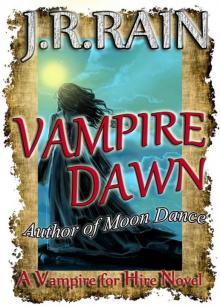 Vampire Moon
Vampire Moon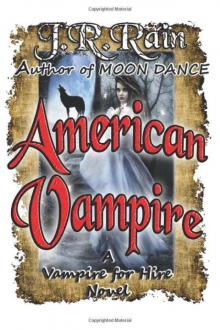 American Vampire
American Vampire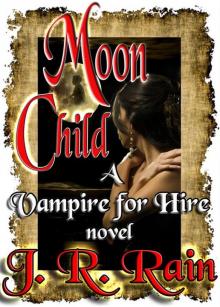 Moon Child
Moon Child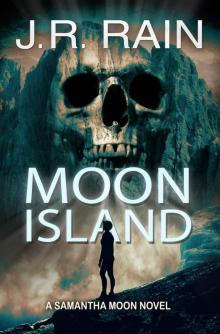 Moon Island
Moon Island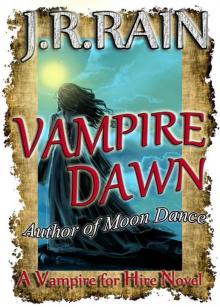 Vampire Dawn
Vampire Dawn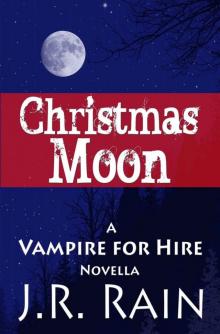 Christmas Moon
Christmas Moon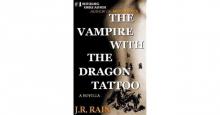 The Vampire With the Dragon Tattoo
The Vampire With the Dragon Tattoo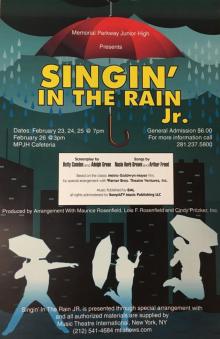 Arthur
Arthur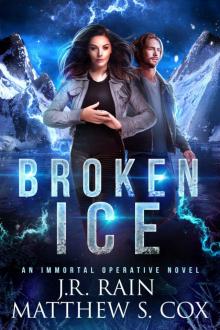 Broken Ice (Immortal Operative Book 1)
Broken Ice (Immortal Operative Book 1)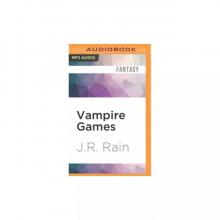 Vampire Games
Vampire Games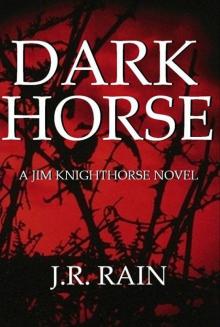 Dark Horse
Dark Horse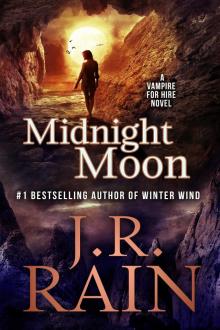 The Vampire Who Played Dead
The Vampire Who Played Dead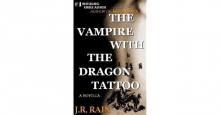 The Mummy Case
The Mummy Case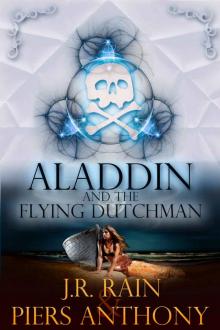 Aladdin and the Flying Dutchman (The Aladdin Trilogy Book 3)
Aladdin and the Flying Dutchman (The Aladdin Trilogy Book 3)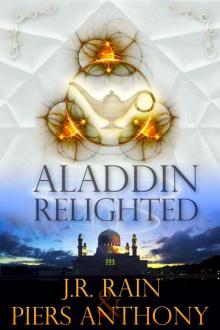 Aladdin Relighted (The Aladdin Trilogy Book 1)
Aladdin Relighted (The Aladdin Trilogy Book 1)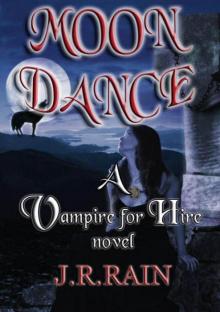 Moon Dance (Vampire for Hire #1)
Moon Dance (Vampire for Hire #1)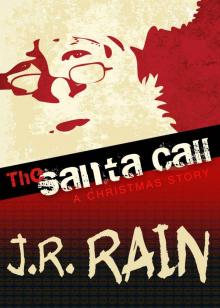 The Santa Call and Other Stories
The Santa Call and Other Stories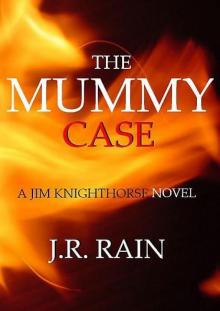 The Mummy Case jk-2
The Mummy Case jk-2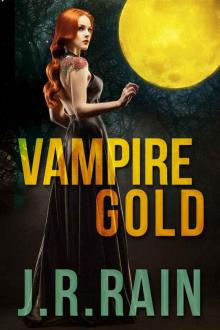 Vampire Gold
Vampire Gold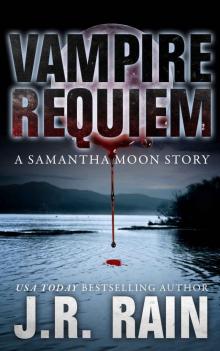 vampire requiem
vampire requiem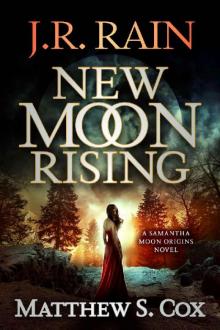 New Moon Rising (Samantha Moon Origins Book 1)
New Moon Rising (Samantha Moon Origins Book 1) The Journey
The Journey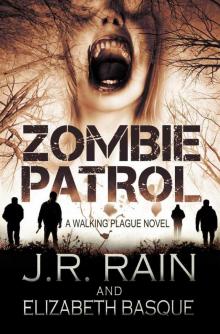 Zombie Patrol (Walking Plague Trilogy #1)
Zombie Patrol (Walking Plague Trilogy #1)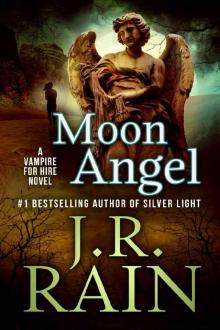 Moon Angel (Vampire for Hire Book 14)
Moon Angel (Vampire for Hire Book 14)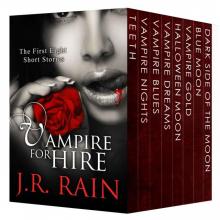 Vampire for Hire: First Eight Short Stories (Plus Samantha Moon's Blog and Bonus Scenes)
Vampire for Hire: First Eight Short Stories (Plus Samantha Moon's Blog and Bonus Scenes)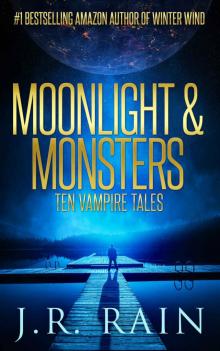 Moonlight & Monsters: Ten Vampire Tales
Moonlight & Monsters: Ten Vampire Tales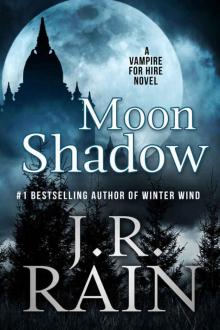 Moon Shadow (Vampire for Hire Book 11)
Moon Shadow (Vampire for Hire Book 11)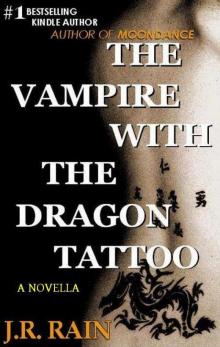 The Vampire With the Dragon Tattoo (Spinoza Series #1)
The Vampire With the Dragon Tattoo (Spinoza Series #1)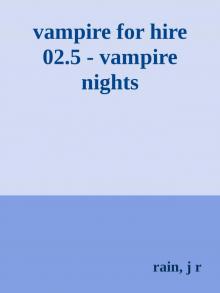 vampire nights
vampire nights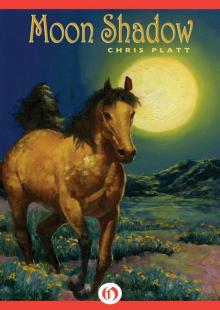 Moon Shadow
Moon Shadow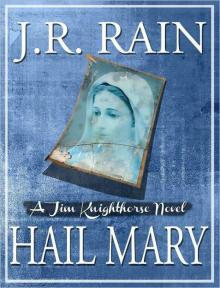 Hail Mary
Hail Mary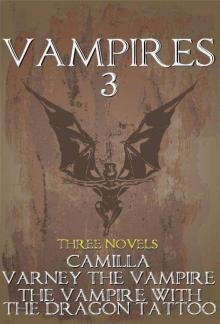 Vampires 3
Vampires 3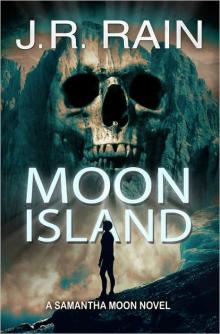 Moon Island (A Vampire for Hire Novel)
Moon Island (A Vampire for Hire Novel)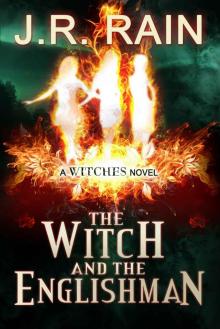 The Witch and the Englishman (The Witches Series Book 2)
The Witch and the Englishman (The Witches Series Book 2)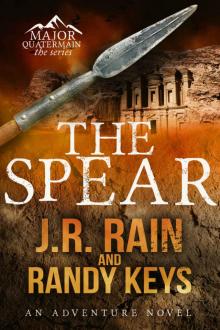 The Spear (Major Quatermain Book 1)
The Spear (Major Quatermain Book 1)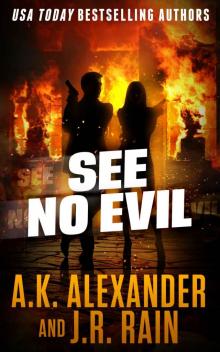 See No Evil (The PSI Trilogy Book 2)
See No Evil (The PSI Trilogy Book 2)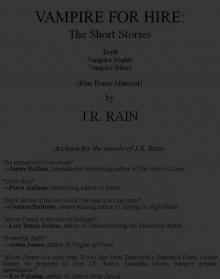 Vampire for Hire: All Three Short Stories
Vampire for Hire: All Three Short Stories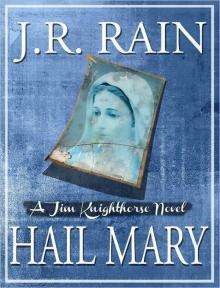 Hail Mary jk-3
Hail Mary jk-3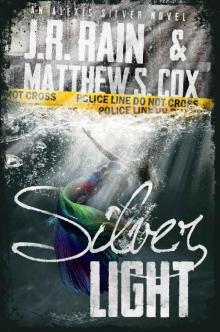 Silver Light
Silver Light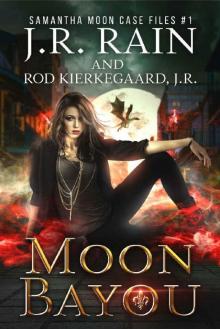 Moon Bayou
Moon Bayou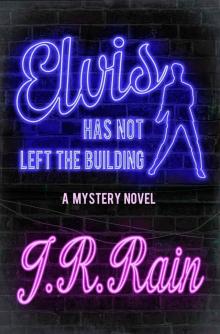 Elvis Has Not Left the Building
Elvis Has Not Left the Building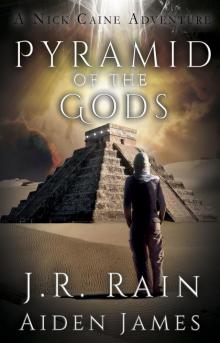 Pyramid of the Gods
Pyramid of the Gods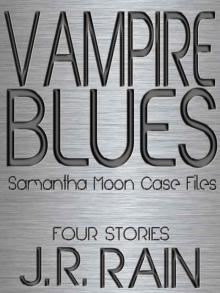 vampire blues
vampire blues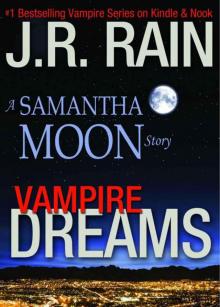 Vampire Dreams
Vampire Dreams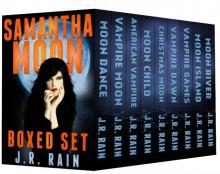 Samantha Moon: First Eight Novels, Plus One Novella
Samantha Moon: First Eight Novels, Plus One Novella Moon Investigations: Books Three and Four
Moon Investigations: Books Three and Four blue moon
blue moon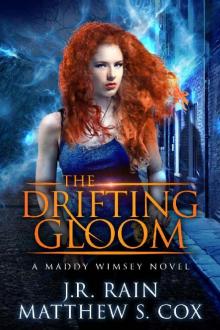 The Drifting Gloom (Maddy Wimsey Book 2)
The Drifting Gloom (Maddy Wimsey Book 2)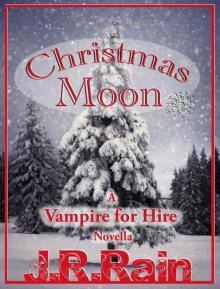 Christmas Moon (A Vampire for Hire Novella)
Christmas Moon (A Vampire for Hire Novella)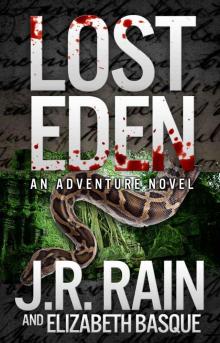 Lost Eden
Lost Eden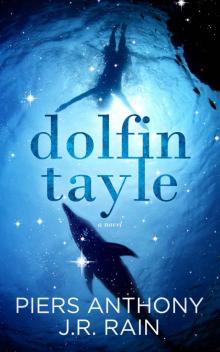 Dolfin Tayle
Dolfin Tayle vampire for hire 02.5 - vampire nights
vampire for hire 02.5 - vampire nights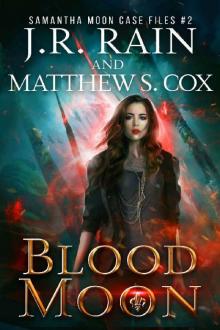 Blood Moon (Samantha Moon Case Files Book 2)
Blood Moon (Samantha Moon Case Files Book 2)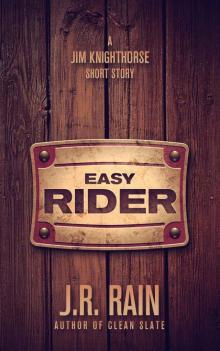 Easy Rider: A Jim Knighthorse Story (Short Story)
Easy Rider: A Jim Knighthorse Story (Short Story)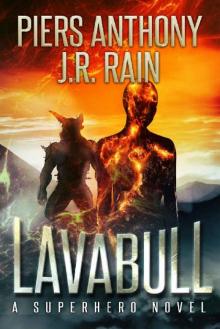 Lavabull
Lavabull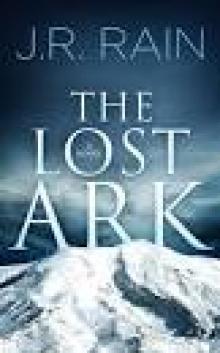 The Lost Ark
The Lost Ark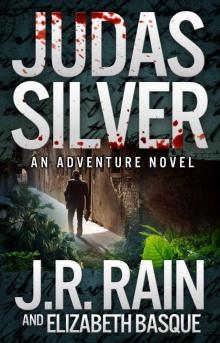 Judas Silver
Judas Silver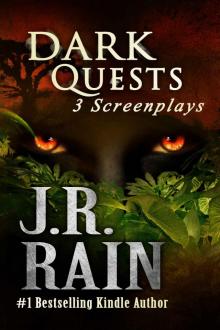 Dark Quests (Three Screenplays)
Dark Quests (Three Screenplays)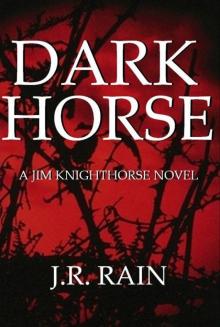 Dark Horse (A Jim Knighthorse Novel)
Dark Horse (A Jim Knighthorse Novel)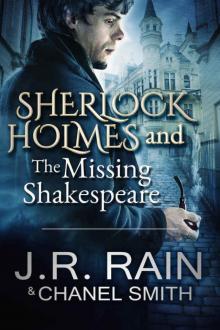 Sherlock Holmes and the Missing Shakespeare
Sherlock Holmes and the Missing Shakespeare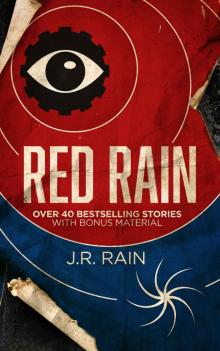 Red Rain: Over 40 Bestselling Stories
Red Rain: Over 40 Bestselling Stories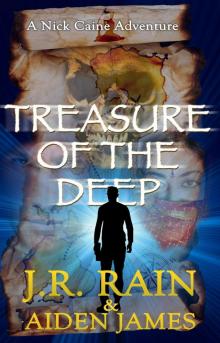 Treasure of the Deep
Treasure of the Deep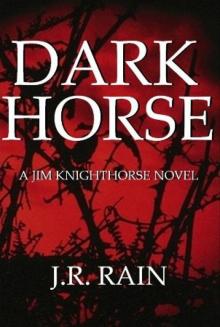 Dark horse jk-1
Dark horse jk-1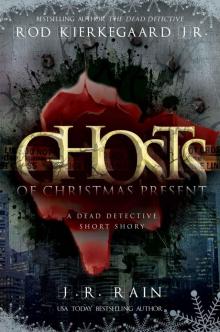 Ghosts of Christmas Present: A Dead Detective Short Story (The Dead Detective)
Ghosts of Christmas Present: A Dead Detective Short Story (The Dead Detective)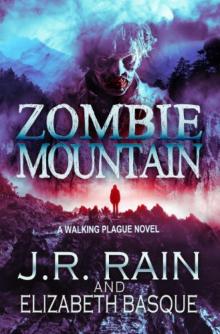 Zombie Mountain
Zombie Mountain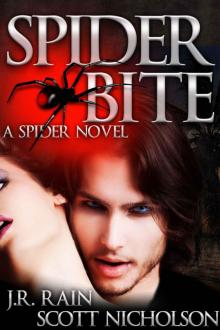 Spider Bite: A Vampire Thriller (The Spider Trilogy Book 3)
Spider Bite: A Vampire Thriller (The Spider Trilogy Book 3)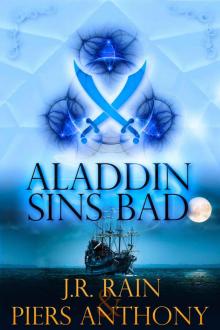 Aladdin Sins Bad (The Aladdin Trilogy Book 2)
Aladdin Sins Bad (The Aladdin Trilogy Book 2)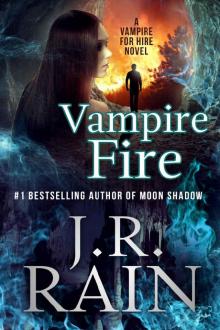 Vampire Fire
Vampire Fire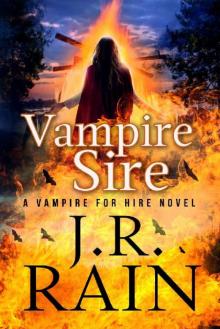 Vampire Sire (Vampire for Hire Book 15)
Vampire Sire (Vampire for Hire Book 15)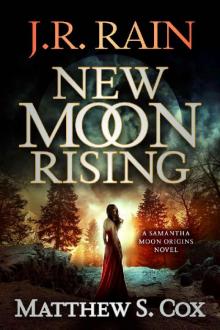 New Moon Rising
New Moon Rising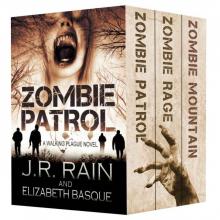 The Walking Plague Trilogy
The Walking Plague Trilogy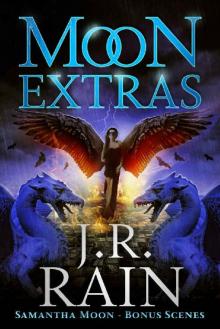 Moon Extras: Samantha Moon Bonus Scenes
Moon Extras: Samantha Moon Bonus Scenes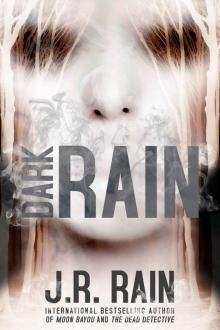 Dark Rain: 15 Short Tales
Dark Rain: 15 Short Tales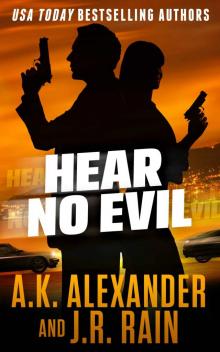 Hear No Evil (The PSI Trilogy Book 1)
Hear No Evil (The PSI Trilogy Book 1)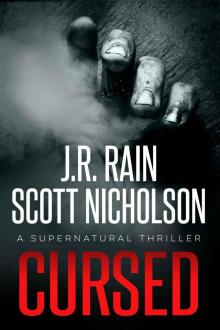 Cursed
Cursed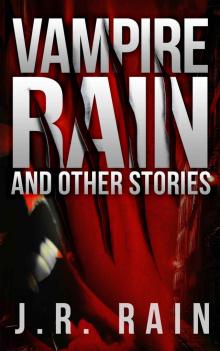 Vampire Rain and Other Stories (Includes Samantha Moon's Blog)
Vampire Rain and Other Stories (Includes Samantha Moon's Blog)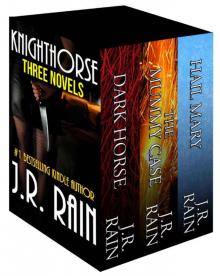 Jim Knighthorse Series: First Three Books
Jim Knighthorse Series: First Three Books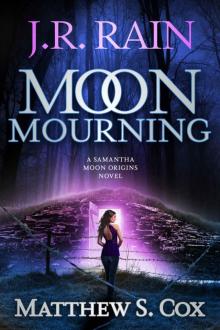 Moon Mourning (Samantha Moon Origins Book 2)
Moon Mourning (Samantha Moon Origins Book 2)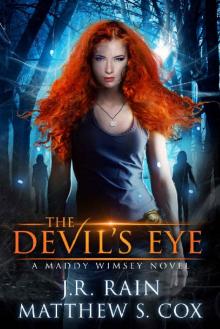 The Devil's Eye
The Devil's Eye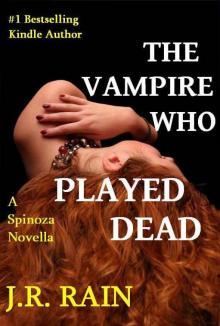 The Vampire Who Played Dead (Spinoza Series #2)
The Vampire Who Played Dead (Spinoza Series #2)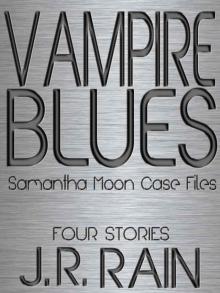 Vampire Blues: Four Stories (Samantha Moon Case Files #1)
Vampire Blues: Four Stories (Samantha Moon Case Files #1)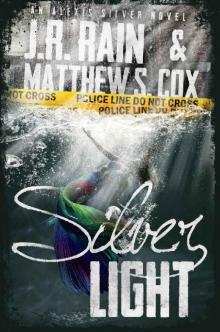 Silver Light (Alexis Silver Book 1)
Silver Light (Alexis Silver Book 1)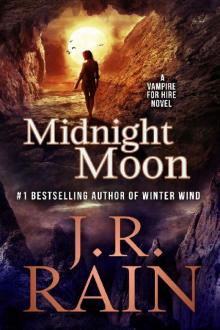 Midnight Moon
Midnight Moon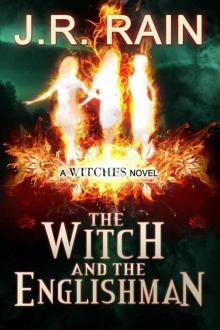 The Witch and the Englishman
The Witch and the Englishman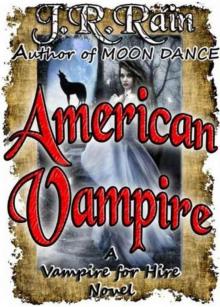 Vampire for Hire
Vampire for Hire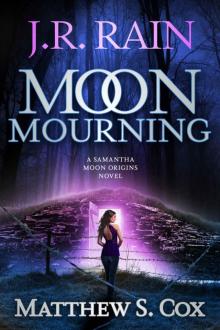 Moon Mourning
Moon Mourning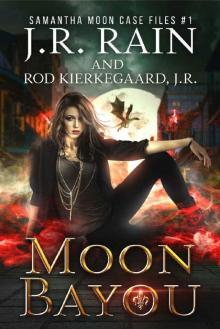 Moon Bayou (Samantha Moon Case Files Book 1)
Moon Bayou (Samantha Moon Case Files Book 1)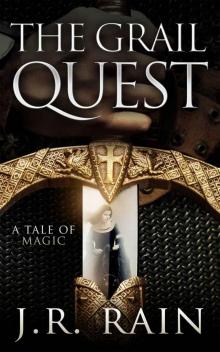 The Grail Quest (The Avalon Book 1)
The Grail Quest (The Avalon Book 1)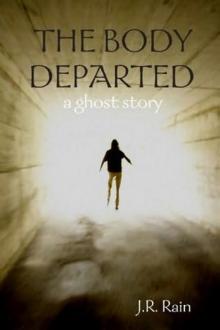 The Body Departed (2009)
The Body Departed (2009)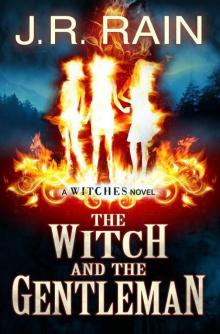 The Witch and the Gentleman
The Witch and the Gentleman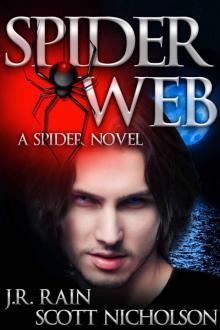 Spider Web: A Vampire Thriller (The Spider Trilogy Book 2)
Spider Web: A Vampire Thriller (The Spider Trilogy Book 2)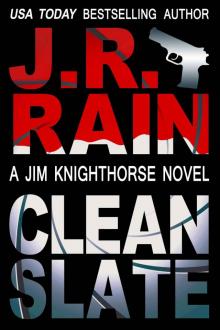 Clean Slate (Jim Knighthorse Book 4)
Clean Slate (Jim Knighthorse Book 4)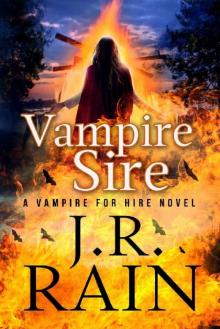 Vampire Sire
Vampire Sire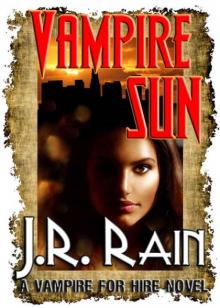 Vampire Sun
Vampire Sun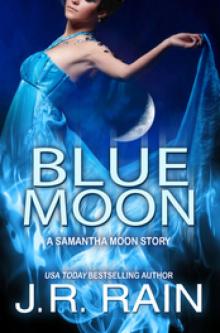 Blue Moon: A Samantha Moon Story
Blue Moon: A Samantha Moon Story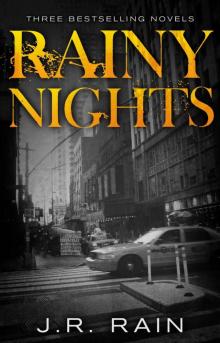 Rainy Nights: Three Mysteries
Rainy Nights: Three Mysteries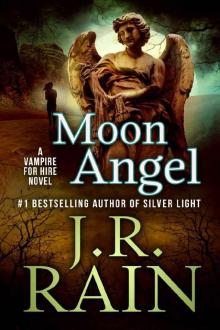 Moon Angel
Moon Angel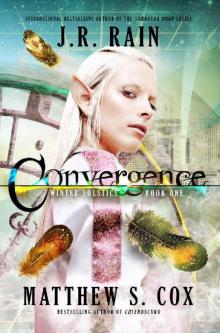 Convergence (Winter Solstice Book 1)
Convergence (Winter Solstice Book 1)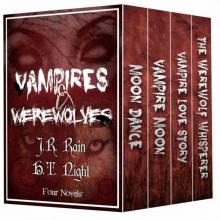 Vampires & Werewolves: Four Novels
Vampires & Werewolves: Four Novels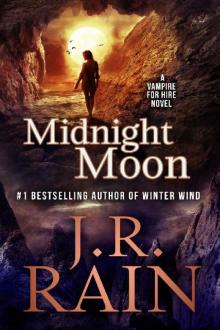 Midnight Moon (Vampire for Hire Book 13)
Midnight Moon (Vampire for Hire Book 13)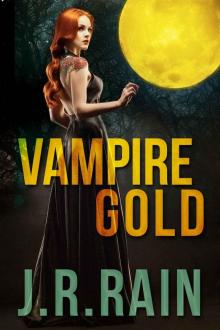 Vampire Gold: A Samantha Moon Story (Vampire for Hire)
Vampire Gold: A Samantha Moon Story (Vampire for Hire)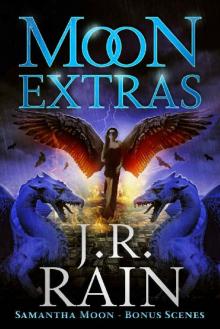 Moon Extras
Moon Extras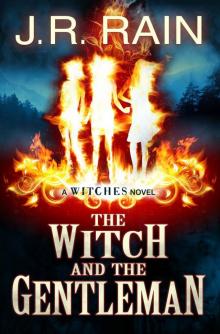 The Witch and the Gentleman (The Witches Series Book 1)
The Witch and the Gentleman (The Witches Series Book 1)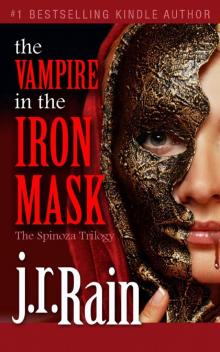 The Vampire in the Iron Mask (The Spinoza Trilogy Book 3)
The Vampire in the Iron Mask (The Spinoza Trilogy Book 3)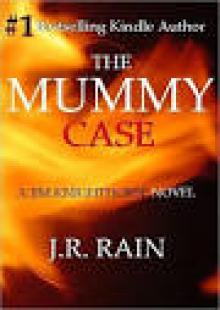 The Mummy Case (Jim Knighthorse Series #2)
The Mummy Case (Jim Knighthorse Series #2)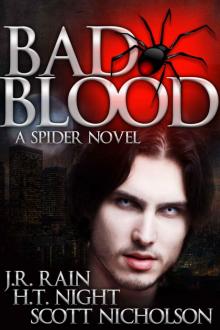 Bad Blood: A Vampire Thriller (The Spider Trilogy Book 1)
Bad Blood: A Vampire Thriller (The Spider Trilogy Book 1)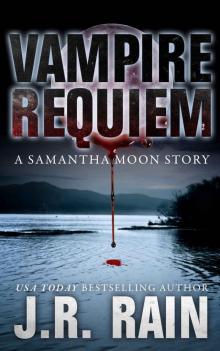 vampire for hire 10.5 - vampire requiem
vampire for hire 10.5 - vampire requiem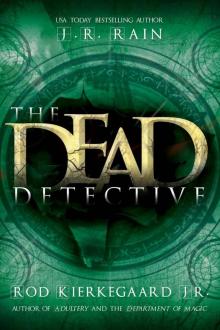 The Dead Detective
The Dead Detective